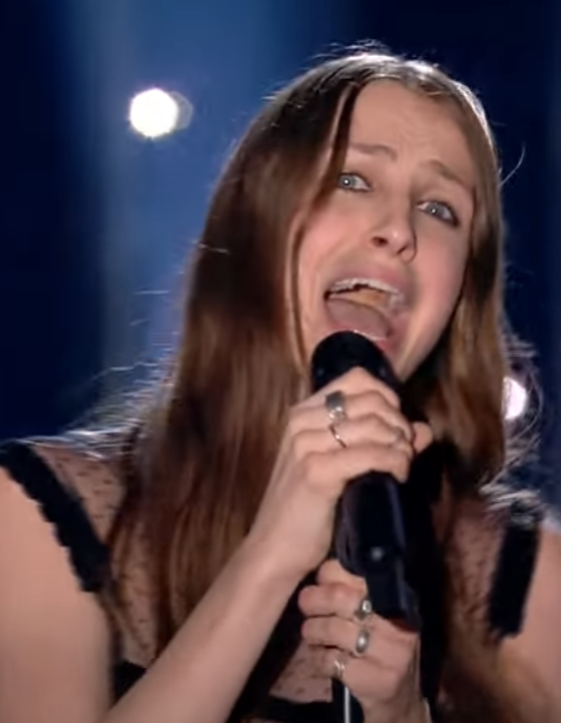
This opinion piece solely reflects the views of the writer and not those of ESCUnited as whole.
So, the 2024 selection season is almost at its close, and we’re looking at a fairly unpredictable year. Unless one of the remaining internals come out of nowhere with a clear winner, we’ve likely heard the winning song and aren’t aware of who it is yet. Why don’t I take a closer look at the most recent contender added into the mix, Croatia’s Baby Lasagna (né: Marko Purišić), and a few other interesting entries down the road?
Before we start, I must confess, I need a round of decompress – I go into the Croatia analysis with a lot of bias. I loved the studio cut of “Rim Tim Tagi Dim”. The live rendition, however, I don’t like nearly as much. A part of that is that the act is going through the usual stages of infancy before the actual live in Malmö. But something else is missing for me, and this editorial serves to articulate what and why.
I have two reasons to write this editorial. First, I’ve alway wanted to really sink my teeth into a song I liked and dissect it, see what works and what does not, so why not? It’s more fun to do it now than after the contest when the power of hindsight makes everything clear to see.
The second reason is that I’m a bit worried for Croatia. My home country, Belgium, also sent an inexperienced 28 year old to the contest a few years ago, with a great song, who was subsequently bombarded to the top of the betting odds, who assumed they would do well based on the odds, and then struggled themselves to death in the stronger semifinal.
You may remember them. She echoed, echoed and flopped.
More recently, I went through the same Sennekian journey with another favourite of mine – Ronela Hajati’s “Sekret“. I’ve always loved the FiK version of that song for its delicate build-up and clever messaging and disliked the direction the revamp took it, which disregarded its narrative strengths in a cheap play for fan votes. I considered writing a critical analysis on “Sekret”, but chose not to, and Ronela turned her beautiful song about never giving up the fight for love into:

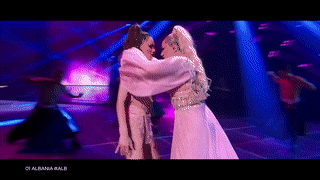
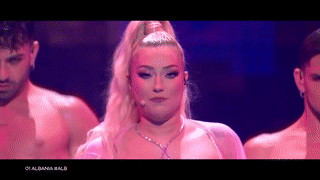
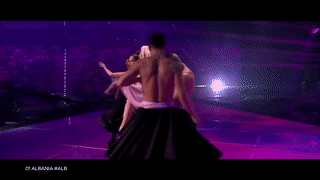
That mistake won’t be repeated this year. I won’t allow it. If I spot a potential dark hose flying a bit too close towards the sun, and I see a way to prevent them from crashing into the sea, I’ll do my part to help them, if I can.
I don’t expect HRT or Baby Lasagna to read this as I’m just a random nobody Eurofan, so hopefully this entire ordeal will be insightful to you my five dear readers, and cathartic for me.
But first, bunch of disclaimers:
- It’s definitely NOT my objective to give Croatia false hope or deflate their chances. The spectrum of placements they can finish in is a wide one: as high as top five but as close to NQ depending on the direction they take it in the next two months. Currently, I think Croatia are looking at around 12th place in their current form. Not bad, but they can do better.
- It is also NOT my objective to offer HRT clear solutions for the weaknesses in their package. I’ll make a few suggestions, that’s it. They are the participating broadcaster, the responsibility is theirs, and it is their duty to support their representative as much as they can. They should have a clearer idea of what to do and offer Marko the solutions he need. What I can do is point out what they’re doing (not so) well and what they probably should consider tweaking a bit.
- Finally, although I write for ESCUnited, these opinions are my own and do not represent what the rest of our editors think. If they want to get their opinions on, they’re welcome to write a counter-editorial. I’m also not an all-knowing oracle who can predict the future (though I’m moderately proficient at guessing qualifiers and estimating the range in which most acts place). I want to be proven wrong about more negative critiques I’m about to write.
Here comes a lengthy analysis on a man, a humble farmboy from Istria, who in the next few days may become this season’s underdog, or this season’s fanwank, depending on his choices.
For this analysis I’ll be focusing on three aspects: the Music, (the story told by its instrumentation and lyrics), the Staging (how the visuals impact the package), and the Performance (how well Marko sells his song).
Here’s a video of the live performance we’ll be analyzing today:
THE MUSIC
The true strength of Croatia’s entry for this year is the song. I’ve already mentioned it in the introduction – the song is perfect for Eurovision. “Rim Tim Tagi Dim” is about adulting and the hysteria manchildren internalize when it’s time to check out of the Mama Hotel.
The protagonist stands before a new phase of his life and is unsure of where it will take him. He has semi-commited himself (sold his cow, sad goodbye to his parents and cat), but the uncertainty of whether he will thrive in the city gnaws on him. Will he find his groove and be accepted? He has severe doubts. So he resorts to a pretty typical (straight) male coping mechanism (“I need a round of decompress“); he doesn’t show his emotions externally and instead deflects his worries into something else, like a traditional dance. It is this dance that ultimately turns the protagonist into a trendsetter, having fully blossomed into the beloved city boy he always wanted to be.
The lyrics are a bit silly and ESL-y (“let us prance” like… a horse in a field?) but the malapropisms add to the charm. Narratively, Rim Tim Tagi Dim uses humour to convey its story and does it really well – most of the jokes land. Lines such as “Meow cat, please Meow back 😭” and “I’m ready to leave and I sold my cow 🐮” are both funny and quotable and yet nail down Marko’s anxiety as something we can empathize with.
Melodically, the electric guitar and titular catchphraze buzz in your ears like swarm of insects, further emulating the internalized dread. The chorus focuses on the deflection of said anxiety, during which Marko cheerfully sings “Anxiety Attaaaaaacks WHAAAOOOOO” in a bluff (and later, a battlecry) that he’s ready to overcome the obstacles his impostor syndrome have set for him.
What is important to remember for later is that the build up is gradual. The protagonist starts as a farmboy and becomes a star by the end of the song.
THE STAGING
And the reason why it’s important to remember that the song builds up gradually, is because the staging almost completely disregards it. I think the act has a few really good ideas but executes them suboptimally. Croatia are usually okay at staging (“Guilty Pleasure” excepted), so this counts as a disappointment.
So what specifically goes wrong? Well first and foremost, there is no real growth being emulated here which, undercutting the depth of the narrative making it come across more like a shallow meme, a ‘joke entry’.
Now bear in mind that “Cha Cha Cha”, which is the natural comparison to “RTTD”, had a very clearly defined growth arc. Käärijä broke from his cage of crates, was harassed by his ballroom demons, and then (after the key change) rode them on the stage and partied along with them, losing his inhibitions. There’s loads of humour and campness in “Cha Cha Cha”, but it’s never been a joke entry. Slowly and subtly, Käärijä asserted his dominance over his insecurities. Since “RTTD” deals with a similar topic, it needs to find its own way of letting Marko overcome his personal obstacles, an approach that doesn’t come across as a carbon copy.
And, in that regard, the staging falls a bit short. The song is about anxiety attacks – use the neurosis and self-deprecating humour to your advantage. Make them more prominent. You sing in English and will reach a wider audience with the message alone, so feel free to utilize it to your advantage. But mostly because both neurosis and self-deprecation are camp, and camp = Eurovision.
The second point of critique is that, for a song that provides A Dance as a coping mechanism, where is this dance? You mean this?:
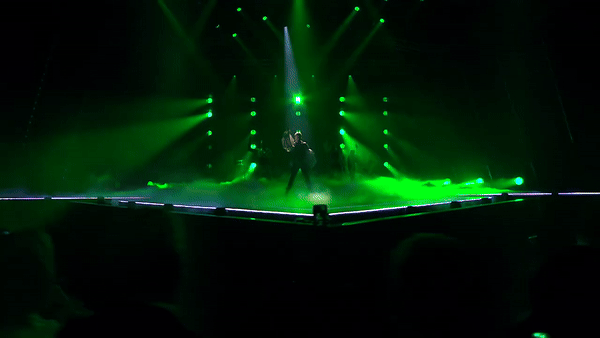

It is a tad underwhelming for a life-defining dance. Going full meme would be a mistake here (since the Estonian narcotics dance is already doing rounds on TikTok, and it would be foolish to try and compete with that). But if you use a dance break to tie your act and narrative together, it needs to be more of a showstopper – incorporating a few more ethnic elements that are easy to execute would make it look more impressive and less amateur.
The act needs to commit more: It needs to commit more to the song and more to the gimmicks it tries to utilize. “RTTD” specifically should go for a more personal approach, incorporate more typically Croatian elements, really hammer down the ethnorock vibe rather than going full meme (since we already have Finland, Estonia, and probably The Netherlands already doing that). I hope HRT and Marko are willing to experiment with both routes and see which of them works out better to find the perfect balance and to consult a skilled stage director who can help them get their vision across.
That said, the act already has several elements that already work very well and must be kept. As said, the act is camp, and that’s always a good way to start. The dancers are excellent – dressed as a city punk and a washerwoman, they are used to express the anxiety by proxy – a good idea, because this allows Marko to put more care into his charisma and singing ability.
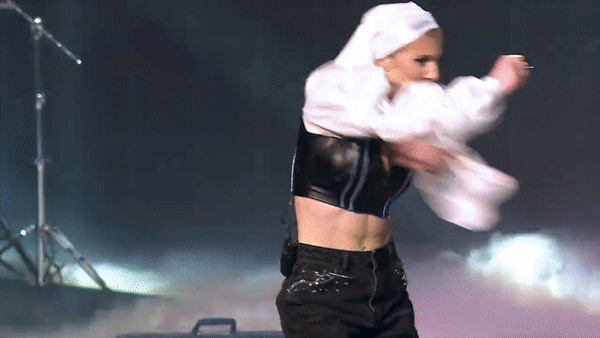
Additionally, “RTTD” makes a lavish use of lights, backdrops, pyros, and smoke machines, and each of these add texture to the visuals. The choice of lights and backdrops is tasteful and synergizes with the song. The colour palette during the verses gives ‘tv static’, a good representation of Marko’s malfunctioning mental health that compliments the black-and-white outfits that are being worn by him and the dancers. The smoke also creates the illusion that we are inside Marko’s mind the entire time, where he’s bravely facing his inner demons. The green lights during the break are a bit too reminiscent of Käärijä (we will discuss this under “Performance”), but the technical aspects were mostly on point. The camera angles need improvement, but this is something the Croatian delegation can easily tweak in accordance with Marko once the stand-in rehearsals come. It will all look better on the actual Eurovision stage.
THE PERFORMANCE
Dora 2024 featured the first and second time Marko performed any song as a lead live. So if you consider that, the performances were good for what they were. The inexperience, nevertheless showed itself.
Before the live, I already thought “RTTD” had very distinct “Cha Cha” Cha energy. The live made that comparison nearly impossible to ignore, so much so that the entire performance reads as “Welcome To ‘Your Face Sounds Familiar’, tonight’s assignment is rappers from Finland“. The outfit, the guyliner, the green lights during the break – It’s a bit too on the nose. Emulating Käärijä is fine – but you need to take ownership of the components that worked out for our crazy Finn – Käärijä is a seasoned performer with ~10 years of solo experience under his belt. Marko needs to find his own brand of camp and humility in two-months time, for his own sake. Staying too close to Käärijä is a risk, because any comparison to “Cha Cha Cha” that viewers and jurors could make shall always end up unfavourable for our hotshot Croat. If the objective is to finish top ten but not top four, then “Last year’s runner up, but not as good” is going to give them exactly that. If Croatia want to do better and beat countries such as Ukraine, Norway, and Italy, they’ll have to work harder for it.
Next, the styling and vibe. The outfit is excellent. It’s distinctly Croatian, with its puffly sleeves and big breeches, and the chains and leather add a rockstar quality. It is very camp. It’s definitely THE outfit you want to end the song on.
But is this where you want to start?
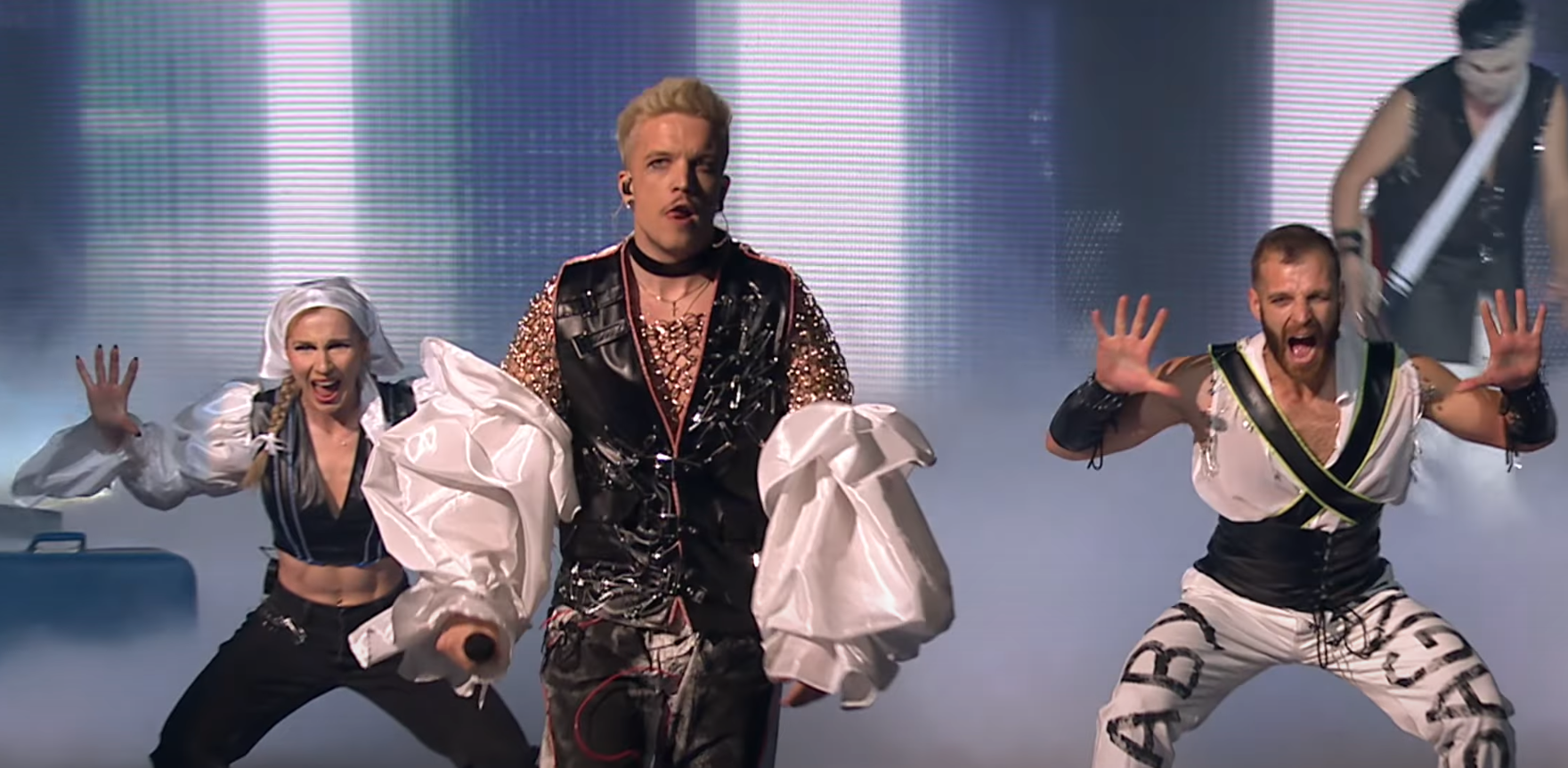
The outfit is bold and must be worn with confidence, which Marko emulates convincingly. “RTTD”, however, is a song about overcoming anxiety. Again, where is the anxiety? If you have a confident singer for three minutes without any form of personal growth, it borders on supercilious and kills the fun. Käärijä became so beloved because he kicked ass while remaining his unassuming self. We love him because he was such a pure soul. If you’re going to emulate him, definitely don’t forget that.
Marko needs to be the version of himself others want to hang out with. He’s not far off – there are definitely instances where Marko slips character and is more himself – the “ciddy bawwwyz” at 01:23 is my fave example of this – that’s a Marko thing, NOT a Kâärijä thing – which are delightful. I don’t want him to start adding adlibs for the sake of it (that would grow annoying really fast) but the act needs to transmute the Käärijä energy into Baby Lasagna energy before the calendar strikes May. Have Marko be a (somewhat) exaggerated version of the person his friends and family love to be around.
Vocally, the performance is… what it is. These vocals are a bit ropey and rough. Considering this was Marko’s second live performance as a main vocalist, it’s nothing to be ashamed of – but it should improve. The song doesn’t need the vocals to be great – Käärijä sounded very bad in Liverpool and still easily won the televote. The vocals need to be good enough to not distract from the rest. Diction is a lot more important since Marko sings in English and that can give him an advantage over other televote songs such as “(nendest) narkootikumidest ei tea me (küll) midagi” and “Ulveham” that are almost fully carried by their energy flow. Improving the vocal performance and diction to passable levels will only benefit Croatia. (Though NEVER at the cost of serving … Party Vibe > Clarity if you must choose, but ideally strive to get both.)
Overall, both the staging and the performance need a more clearly defined growth arc. This is where the character development should kick in I mentioned earlier – Starting neurotic or humble, and gradually pupating into a confident performer is a much stronger representation of both the song and of Marko as a growing artist. There are several ways to get this across – Marko could act out the neurosis with his face and body language. He can also opt for a change in dress (starting in clothes similar to the ones in the MV, then slipping into his bolero during the break). The act can also be tweaked to be more funny and self-deprecating. There are definitely options, though. The song is humorous – be humorous.
Finally, better camera interaction can help Marko connect with his audience more. He tends to look away when the camera focuses on him a bit too often. Telegenic-ness is something you can practice.
None of these issues are impossible to solve, but they require intense practice to streamline them with a performer who is still fairly new to all this. Croatia are in a bit of a time-crunch there. Pre-parties start in a month, followed by dress rehearsals in two months from now. The time to start polishing up this rough diamond should already be well underway.
Overall verdict:
“Rim tim tagi dim” is the best Croatian entry in ages and the first true chance of a top 10 in a long long while. Personally, I’m always a fan of the small underdog countries (Portugal, Estonia, Lithuania, Slovenia) and I love it when one of the lesser underdogs pick up momentum to improve themselves. This is one such entry and it would be a shame to see it go to waste.
However, Marko’s inexperience and the somewhat misguided staging could result in a lower placement if the issues aren’t addressed and streamlined. There’s a lot of potential here, but it hasn’t been reached yet.
STRENGTHS:
- Excellent instrumentation that provides efficient scaffholding for the message
- The song is an earworm with fun catchphrases that are a joy to sing along with. (There’s high potential for interaction with the audience in the arena)
- Self-deprecating humour that appeals to a wide audience
- Succeeds in nailing a camp vibe (though this should become more prominent in Sweden)
- Strong use of technical aspects (lights, smoke, backdrops, pyros)
- High-ish televote potential, but the actual number is uncertain – it competes with Finland, Estonia and possibly Netherlands for the same meme vote
FLAWS:
- The performer is inexperienced in both main vocals and dancing and needs better support in both
- Despite being charismatic, Marko’s charms are not deployed properly – his “confidence” borders on smugness at times.
- Not enough synergy between act and song (act glosses over the song’s strong narrative a bit too much)
- Lack of refinement in the key characteristics of the act (such as the dance)
- Somewhat low jury potential due to all of the above, which hamstrings Croatia’s chances for a top five at this moment, despite currently being second in the betting odds
OBJECTIVES FOR MALMÖ:
- This is a song about anxiety – make that aspect stand out a bit more.
- This is a playful, humorous entry, use that to your advantage.
- Reduce the parallels between Käärijä and Baby Lasagna that reflect badly on the latter.
- Refine the defining aspects to be more impactful (dance, farm references, neurosis, etc)
- Further improve Marko’s performance skills with rehearsals (specifically his diction and on-stage charisma)
The next one WON’T be this lengthy (and there will be a next one because Connor wants me to show bias to more than one country. Okay then~ )

